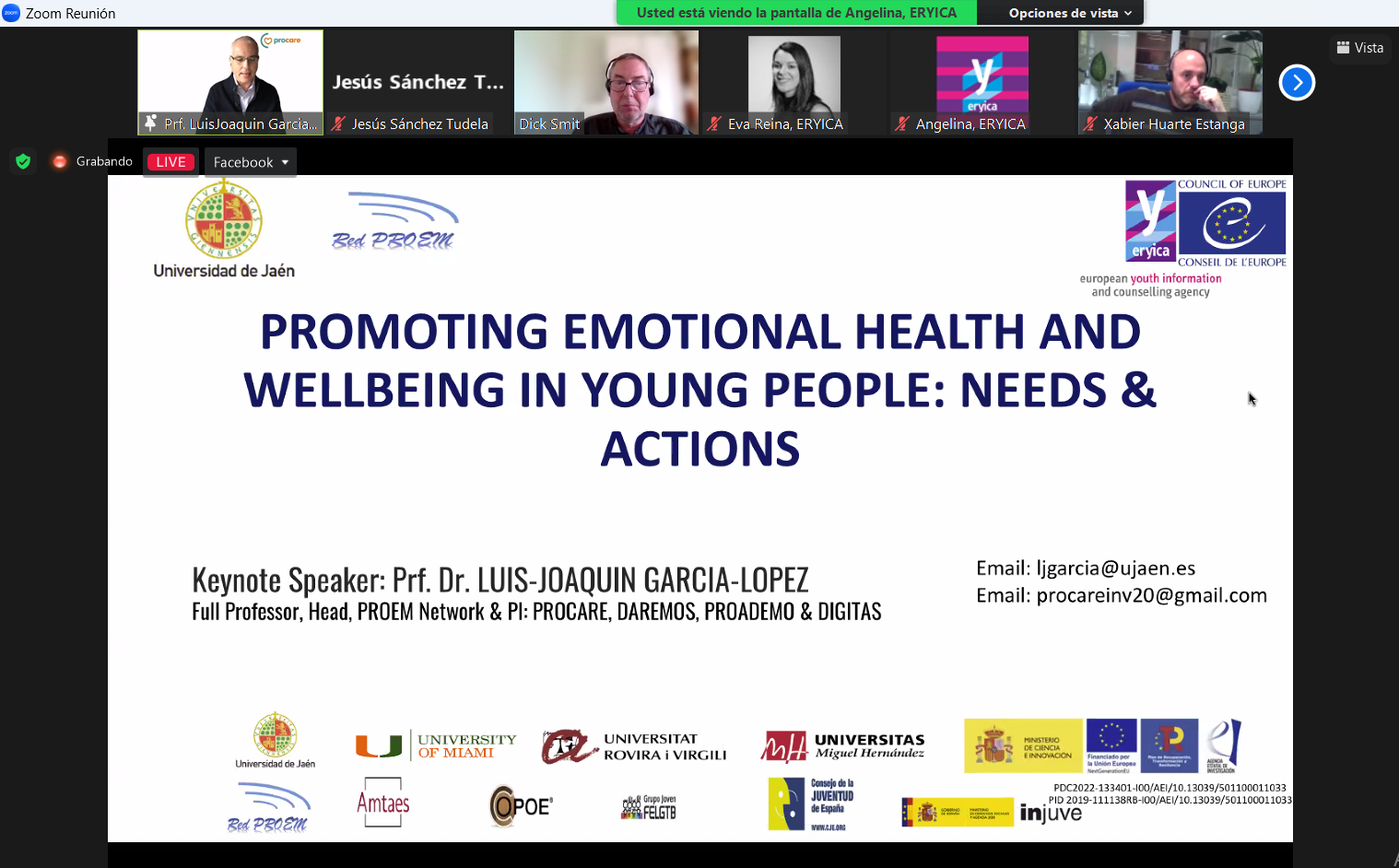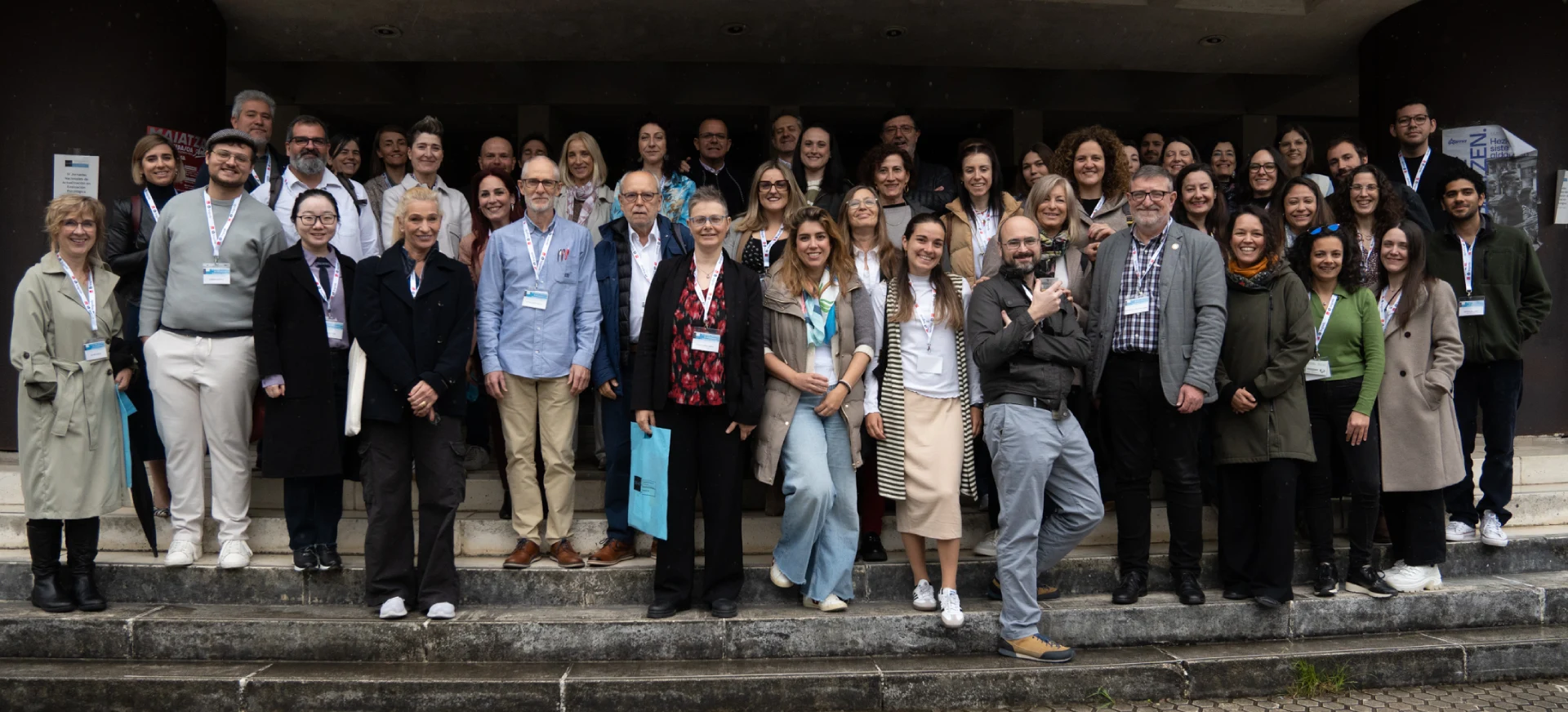ERYICA, in collaboration with the Council of Europe, organized this webinar aimed primarily at young people and youth workers, as well as health and education professionals.
5/12/2022.- Luis Joaquín García, professor of Psychology at the University of Jaén (UJA), presented the initiatives to promote emotional well-being in adolescents DAREMOS, PROCARE, PROEADEMO, DIGITAS, BIG HUG and Level UP at the webinar “Do you kNOw distress? – Youth information responses to mental health”, organized by the European Youth Information and Counselling Agency (ERYICA), in collaboration with the Council of Europe.
The event, aimed at young people, youth workers, as well as education and health professionals and the general public, provided information on the impact of the pandemic on the health and emotional well-being of young people through the vision of specialists in child and adolescent mental health and other disciplines, and made it possible to hear and value the point of view of young people on this issue.
Luis Joaquín García gave the opening lecture of the webinar, analyzing the mental health needs of young people and delving into successful actions carried out to improve this situation. In his presentation, he broke down the keys to the six initiatives to promote emotional wellbeing in adolescents and young people in which his team at UJA has participated in recent years: DAREMOS, PROCARE, PROADEMO, DIGITAS, BIG HUG and Level UP.
Luis Joaquín García emphasized the objectives of these six projects and the results obtained in some of them. In this sense, he highlighted that “DAREMOS is a multidisciplinary initiative (Psychology, Epigenetics, Corpus Linguistics and Big Data) pioneer in the early detection of adolescents at risk of developing emotional difficulties”. Subsequent to DAREMOS, BIG HUG has continued to advance the importance of detecting difficulties faced by adolescents.
For his part, he stressed that “PROCARE is the first transdiagnostic prevention initiative at international level that has demonstrated its efficacy in the intervention of adolescents at risk of developing emotional problems such as anxiety or depression, under the framework of selective prevention (PROCARE+) and at high risk under the framework of indicated prevention (PROCARE-I)”.
As for PROADEMO, a project that has just started, he pointed out that its purpose “is to prepare a complete methodology that promotes the participation of adolescents and social agents in the development of guidelines for national and European policies, and the drafting of documents in child-friendly language”.
Finally, about DIGITAS he highlighted “the mental health literacy achieved through the use of digital tools and the development of resources and materials to address the stigma associated with emotional problems, while about Level UP he praised “the multi-level approach on the development of skills and tools in higher education around emotional wellbeing”.
The day also included a presentation by Eva Reina, Director of ERYICA; an interview by Maria Fsadni, member of ERYICA’s Youth Ambassadors Commission, with Anna Knobbout, member of the Advisory Council on Youth; and presentations by Anna Nesladek and Angelina Pereira, ERYICA technical staff. Also, examples of good practices in youth information services and other related sectors were presented through the testimonies of: Chara Spyropoulou (IASIS NGO, Greece), Patricia Venâncio (ANIJ, Luxembourg) and Silvia Solà and Mariona Altimira (Castellterçol City Council, Spain).


